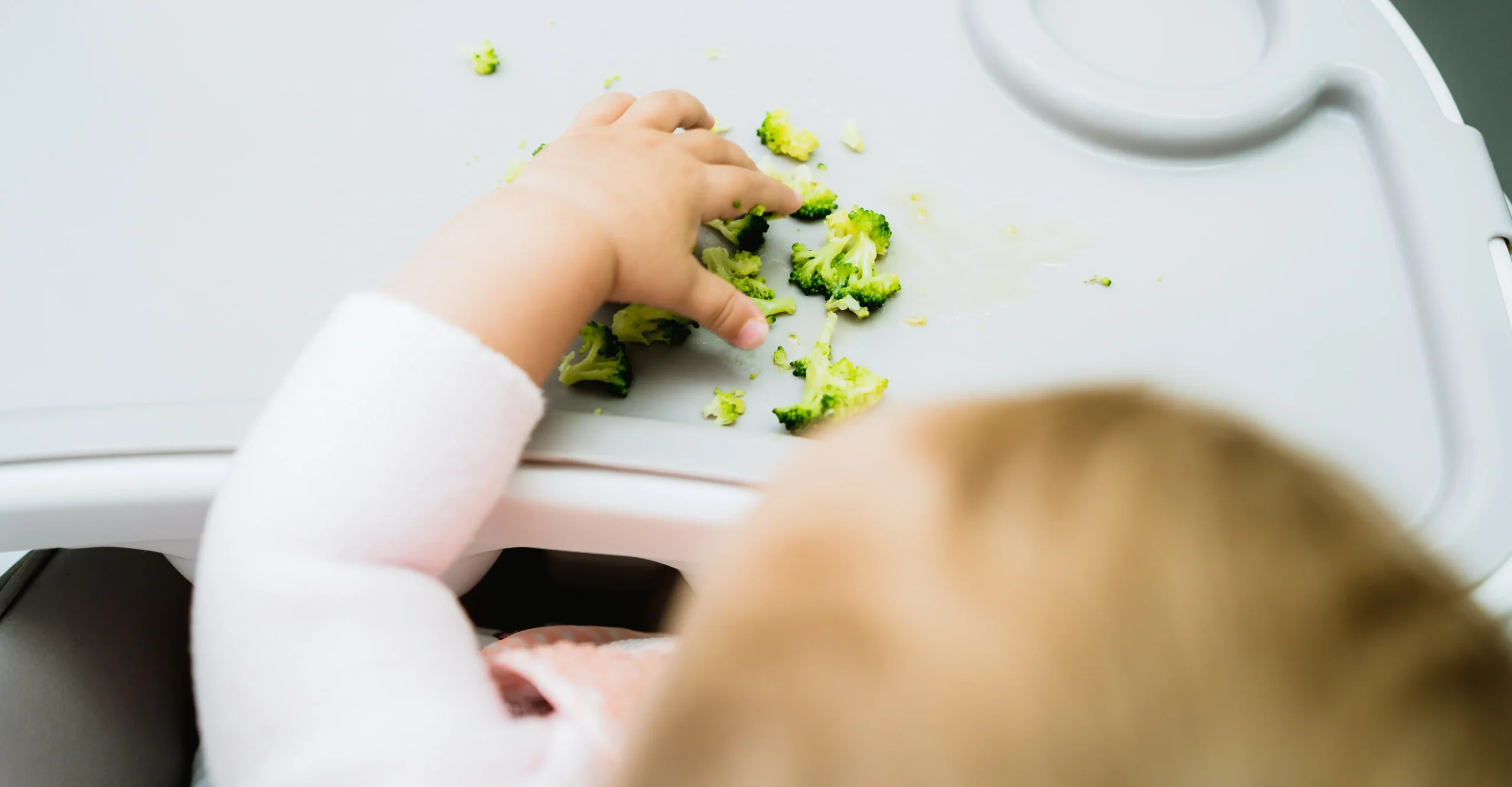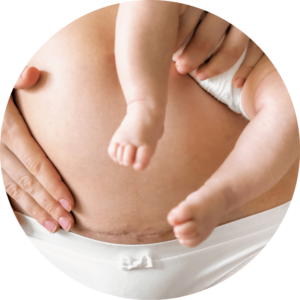Post-Weaning Depression: What It Is and Why We Should Talk About It


Last Updated: 14 March 2025

Feeding your baby is often seen as one of the most intimate and nurturing parts of motherhood. It’s a journey filled with highs and lows, from the triumphs of mastering the latch to the exhaustion of sleepless nights. But what happens when that chapter comes to an end? For many mothers, weaning marks not only a physical transition but also an emotional one—and it’s not always easy.
The emotional and physical transition of weaning often surprises mothers, as it’s typically viewed as something practical and necessary, with little attention given to the emotional aspects. Post-weaning depression, despite not being a formal medical diagnosis, is a real and often overlooked experience that affects countless women. It’s a complex mix of emotional, psychological, and physiological changes that can leave mothers feeling overwhelmed, disconnected, or even lost. And yet, despite its prevalence, post-weaning depression is rarely discussed. Many mothers don’t even know it exists until they’re in the thick of it.
In this article, we’ll explore what post-weaning depression is, why it happens, and how we can better support mothers through this transition. It’s time to break the silence, share the stories, and ensure no mother feels like she’s facing this alone. Motherhood is a journey, and this is one part of it that deserves more attention, compassion, and understanding
Don't Suffer in Silence
If you are feeling overwhelmed, persistently sad, or struggling with any emotions that feel difficult to manage, please know that you are not alone, and help is available. The South African Depression and Anxiety Group (SADAG) offers free, confidential support and resources for those experiencing emotional challenges. Talking to someone who cares and understands can make all the difference. Your mental health matters, and you deserve support and compassion on this journey.
What is Post Weaning Depression?
Post-weaning depression refers to the emotional and psychological challenges some women face after stopping breastfeeding or pumping. While it’s not an officially recognised medical diagnosis, it encompasses symptoms that can range from mild sadness to severe depression, sometimes meeting the criteria for major depressive disorder (MDD).
Though not formally acknowledged in medical literature, post-weaning depression is often grouped with postpartum mood disorders. Some experts even consider it a form of late-onset postpartum depression due to its connection to the hormonal and emotional shifts that occur after childbirth. Women with a history of prenatal anxiety or depression may be more prone to post-weaning depression, though it can affect anyone, regardless of how long they breastfed or their reasons for stopping.
Signs & Symptoms
Post-weaning depression can manifest in a variety of emotional, mental, and physical symptoms. These may include:
- Persistent sadness or feelings of emptiness: A sense of loss or prolonged sadness that may lead to frequent crying.
- Anger and frustration: Feeling easily angered or unable to manage frustration.
- Hopelessness: A sense that things won’t improve or that there’s no way forward.
- Irritability and mood swings: Experiencing sudden mood shifts, from irritability to tearfulness.
- Weepiness: Feeling teary or overly emotional without a clear reason.
- Loss of interest or pleasure: A diminished interest in activities or hobbies that used to bring joy.
- Feelings of worthlessness or guilt: Struggling with self-doubt, guilt, or feeling like you’re not a good enough parent or person.
- Anxiety: Worry or nervousness that interferes with daily functioning.
- Difficulty sleeping: Insomnia or oversleeping despite exhaustion.
- Changes in appetite: Eating significantly more or less than usual.
- Fatigue: Feeling physically and emotionally drained.
- Difficulty concentrating: Trouble focusing or making decisions.
- Inability to function normally: Struggling to complete everyday tasks.
These symptoms can range from mild to severe, varying from person to person. Recognising them early can help you seek appropriate support and treatment.
Why have I never heard of Post Weaning depression?
It’s a valid question, and one that countless mothers find themselves asking. Despite its significant emotional impact, post-weaning depression often flies under the radar. Unlike postpartum depression, which has rightfully garnered attention and research, post-weaning depression remains the less-talked-about sibling, slipping through the cracks of public discourse and medical studies.
Part of the issue is that many women don’t connect their feelings of sadness, anxiety, or irritability with the act of weaning. Weaning is often seen as a practical, almost logistical, part of motherhood rather than an emotional milestone. So, when these unexpected waves of emotion hit, it’s easy to feel blindsided—like you’re the only one experiencing it.
The lack of awareness can leave mothers feeling confused and isolated, wondering why no one ever mentioned this part of the journey. But here’s the good news: this silence is beginning to lift. Thanks to the bravery of mom bloggers and the reach of online communities, more women are opening up about their experiences. They’re sharing the real, raw truths about the emotional rollercoaster that can accompany weaning, helping others recognise they’re not alone.
These conversations are powerful. They’re breaking the stigma around post-weaning depression, normalising the experience, and giving mothers the confidence to seek support when they need it. With more voices joining in, post-weaning depression is finally getting the attention it deserves. And with every story shared, we’re taking another step toward ensuring no mother feels she has to navigate this part of motherhood on her own.
So, if you’ve ever felt like you’re the only one struggling after weaning, know this: you’re not alone. And by talking about it, we’re all helping to make this a conversation that’s impossible to ignore.
What Causes Post-Weaning Depression
The causes of post-weaning depression are incredibly complex and still poorly understood, making it a challenging topic to address fully. It involves a delicate interplay of emotional and physiological factors, each of which can vary widely from one mother to another. Whether it occurs naturally, as the child loses interest, or is prompted by external factors like low milk supply or societal pressures, this transition can evoke a range of feelings. For some mothers, especially those of older or last-born children, it may feel like the closing of an important chapter in motherhood. This shift can bring grief, nostalgia, or uncertainty about the next stage of parenting.
Emotional and Psychological Factors
Weaning isn’t just about stopping breastfeeding—it’s about stepping into a new chapter of motherhood, and that can be both beautiful and bittersweet. You’ve likely spent countless hours nursing your little one—thousands in that first year alone—giving so much of yourself, physically and emotionally. Breastfeeding may have become a big part of how you nurture, comfort, and connect with your baby. Letting go of that can feel… hard. And that’s okay.
It’s important to acknowledge that breastfeeding is no small feat. It’s demanding—those sleepless nights, the cluster feeding marathons, the moments of doubt about supply or latch. You worked through it all, because you wanted to give your baby what they needed. So, when breastfeeding comes to an end, whether you chose it or it came unexpectedly, it’s no surprise that it stirs up big emotions.
For some mothers, weaning happens gradually. You might not even realize it at first. Maybe your baby nurses less and less until one day, you notice it’s been days since the last feed. What might have been the “last time” came and went without fanfare. That can feel strange, even unsettling. For others, weaning feels more abrupt, whether it’s due to work, health reasons, or circumstances beyond your control. In those moments, it’s natural to feel a sense of loss or even anger, like something meaningful ended before you were ready. And if this is your last baby, it might hit you even harder, as though a door has closed on a part of motherhood you cherished deeply.
You might hear this referred to as “breastfeeding grief,” and it’s a very real thing. It’s not just about missing the act of nursing, it’s about the quiet moments of closeness, the way breastfeeding anchored your day, or even how it gave you a sense of purpose in those early months when everything else felt so overwhelming. But here’s the thing: whatever you’re feeling—grief, relief, a mix of both—is completely valid.
Some mothers find weaning to be a welcome relief, a chance to reclaim parts of themselves after giving so much. Others feel nostalgic for those nursing moments, even if they were tough at the time. Most feel a bit of both, and that’s perfectly normal too.
Weaning is a big adjustment for both you and your baby, emotionally and physically. It’s okay to take your time with it, to feel whatever comes up, and to lean on the people around you for support. This isn’t just the end of breastfeeding—it’s a transition into a new phase of your relationship with your child, one filled with new ways to connect, nurture, and love.
You’re doing an amazing job, and it’s okay to give yourself grace as you move through this. Motherhood is a journey, and every step, even the hard ones, helps shape the beautiful bond you share with your child.
Physiological Factors
In addition to everything happening in your mind and emotions, your body is also going through some significant changes during weaning. Physiologically, this transition triggers a cascade of hormonal shifts that can directly impact how you feel.
During breastfeeding, two key hormones, prolactin and oxytocin, play a vital role. Prolactin, the milk-production hormone, promotes feelings of calm and relaxation, while oxytocin, often called the “bonding hormone,” helps create a deep emotional connection between you and your baby. When breastfeeding stops, these hormone levels drop, which can leave you feeling unsettled, disconnected, or unexpectedly low.
But there’s more to it than just prolactin and oxytocin. As your estrogen and progesterone levels rise, returning to pre-pregnancy levels, you may experience mood swings and irritability, similar to—but often more intense than—PMS. Recent research has also highlighted the role of a brain steroid called allopregnanolone (ALLO), which helps regulate mood. The hormonal changes during weaning, and the return of menstruation, may alter how ALLO interacts with your brain’s receptors. In some women, instead of alleviating depressive symptoms, ALLO may actually contribute to them, particularly if you’re sensitive to hormonal fluctuations.
Emerging research is continuing to explore these hormonal and neurological changes, helping us better understand why some women experience post-weaning depression while others do not. This is an important step in addressing the mental and physical challenges that come with weaning.
On top of all this, your body is also adjusting to the physical process of stopping milk production. Whether weaning happens gradually or suddenly, your body needs time to recalibrate, which can lead to temporary feelings of fatigue, low energy, or irritability.
These changes are a normal part of the weaning process, but they can feel overwhelming when paired with the emotions of this transition. It’s important to recognise that your body is working hard to adapt. Be patient with yourself and approach this time with self-compassion. And remember, if you’re feeling overwhelmed, you’re not alone. Your experiences are valid, and support is always available.
Preventing Post Weaning Depression
While it may not always be possible to completely prevent post-weaning depression, there are steps you can take to minimise the likelihood of experiencing severe symptoms.
Mentally Prepare for the Changes Your Body Will Go Through When Weaning
If you can, take some time to learn about the changes your body may go through during weaning, as well as the signs and symptoms you might experience. Understanding these changes can help you approach the process with more compassion and grace for yourself. It also equips you to distinguish between what’s normal and when it might be time to seek help.
That said, weaning doesn’t always happen on a planned timeline. Sometimes, your baby decides they’re done breastfeeding before you’ve had the chance to prepare. If this happens, it’s still not too late to learn about the emotional and physical shifts you’re going through. Taking even a little time to educate yourself can help you process the massive transition your body and mind are experiencing
Involve your partner or a close support person in this journey. Educate them about the emotional and physiological changes that come with weaning and how they can support you. Having someone who understands what you’re going through can make all the difference, providing care and reassurance during this significant milestone. Whether you’re preparing in advance or navigating unexpected weaning, knowledge and support are invaluable tools for this transition.
Gradual Weaning
While there is limited scientific research specifically addressing whether gradual weaning can prevent significant hormonal fluctuations and associated emotional changes, some experts suggest that a slower transition may help mitigate these effects. Gradual weaning allows the body to adjust more slowly to the reduction in breastfeeding, potentially leading to a more stable hormonal environment. This approach may help in maintaining more consistent levels of hormones such as prolactin and oxytocin, which are closely tied to mood regulation and emotional well-being.
However, like many aspects of the breastfeeding and weaning journey, this remains an under-researched area. Hormonal changes during weaning are incredibly complex and can vary widely from one mother to another, making it difficult to draw definitive conclusions. While some mothers report feeling a smoother emotional transition with gradual weaning, more comprehensive studies are needed to confirm these potential benefits and understand the full impact of weaning on hormonal and emotional health.
For now, gradual weaning remains a thoughtful option to consider, especially if you are looking for a gentler way to navigate the physical and emotional transitions of ending breastfeeding.
Building a Strong Support Network
A strong support network is one of the most powerful tools for preventing post-weaning depression. Sharing your plans and feelings with trusted friends, family members, or other mothers can help you feel less isolated during this emotional transition. Knowing that someone is there to listen, validate your feelings, and offer encouragement can make a world of difference.
Parenting or breastfeeding support groups—whether in person or online—are invaluable spaces for connecting with others who truly understand your experience. Hearing from mothers who have navigated similar challenges can provide practical tips, reassurance, and a sense of solidarity. These groups often become safe havens where you can express your emotions openly, share concerns, and find comfort in knowing you’re not alone.
Your partner or a close family member can play a particularly important role. Educating them about the potential emotional and physical challenges of weaning equips them to better support you. They can help by taking on additional parenting duties, providing emotional encouragement, or simply being there to listen when you need to talk.
Professional support is another critical resource. Consulting a lactation consultant or healthcare provider during the weaning process can give you personalised guidance tailored to your situation. They can help you develop a weaning plan that works for you and your child, troubleshoot any challenges, and provide tools for managing emotional changes.
Having a strong support system can also act as an early warning system. Those close to you are often the first to notice if you seem unusually overwhelmed, withdrawn, or struggling. Their perspective can help you recognise when it’s time to seek additional help, such as counselling or medical advice, before symptoms worsen. Ultimately, knowing you have people to lean on—whether they’re friends, family, professionals, or a community of fellow mothers—can help you navigate weaning with greater confidence and resilience. Support systems not only prevent isolation but also provide the emotional and practical resources needed to help you through this important phase of motherhood.
Coping With Post Weaning Depression
Post-weaning depression is a real and often overlooked experience, arising from the complex interplay of emotional and physiological changes that come with ending breastfeeding. If you find yourself feeling overwhelmed during this transition, it’s important to know that you’re not alone, and there are ways to navigate these feelings. Coping with post-weaning depression involves recognising your emotions, leaning on support networks, seeking professional help if needed, and finding new ways to connect with your child. With patience and self-compassion, you can embrace this new chapter while caring for your well-being.
Self Care
Remember the person you were before your days were filled with nappy changes, endless feeding sessions, and newborn cuddles? It’s not always easy to picture her, but take a moment to think back to the things she used to love. What made her laugh, what helped her unwind, and what gave her joy? Try to bring some of those things back into your daily routine, even if it’s just in small doses.
And let’s get real: self-care isn’t just about face masks and bubble baths (though they can be lovely). It’s also the harder, gritty stuff—like journaling your thoughts, reflecting on your feelings, moving your body with exercise, and fuelling yourself with good food. A face mask isn’t going to fix the exhaustion or the emotional upheaval that comes with weaning, but carving out time every day to treat yourself like a whole person—outside of being a mum—can make a huge difference.
Start small. Maybe it’s a quick walk to clear your head, scribbling in a journal for five minutes before bed, or setting aside time to eat a proper meal instead of snacking on leftovers. These tiny actions remind you that you matter, that your needs are just as important as everyone else’s in the family.
You deserve the same care and love you so freely give to others. Start with small, consistent steps, and remind yourself daily that you’re not just a mum—you’re a person who deserves to feel whole and happy.
Reflecting on Your Changing Role as a Mother
Weaning often comes with a shift in your role as a parent, as your child becomes more independent. You might notice them sleeping longer, spending more time away from you, or needing less physical comfort. While this can bring relief, it can also stir up emotions like nostalgia, uncertainty, or even grief for the phase of life that’s ending.
Take time to reflect on the beautiful milestone you and your baby have achieved together. You’ve worked hard to build a strong bond through breastfeeding, and your role as a mother is evolving as they grow. It’s natural to wonder how you’ll navigate parenting without breastfeeding as a tool—how to soothe a tantrum, calm a bad dream, or find those extra moments of quiet in the morning. These challenges are part of the transition, but they also open the door to discovering new ways to connect and nurture your child.
Through it all, remind yourself that your love and care remain constant. Celebrate the journey you’ve shared and the growth you’ve experienced together. This is not just an end—it’s the beginning of a new chapter in your relationship, one that is just as meaningful and full of love. Give yourself grace, and take pride in the incredible work you’ve done as a mother.
Finding New Ways to Connect
If you’re missing the physical closeness of breastfeeding, finding new ways to connect can help bridge that gap and maintain the bond you share with your child. Cuddling, playing physical games, or sharing baths are wonderful ways to nurture your relationship while giving you a much-needed oxytocin boost—the same “love hormone” released during breastfeeding. Oxytocin helps promote feelings of calm, connection, and emotional well-being for both you and your child.
Skin-to-skin contact is another powerful way to maintain closeness after weaning. Holding your baby against your chest, especially during quiet moments like before bedtime or after a bath, can recreate the comforting warmth and security they associate with breastfeeding. Skin-to-skin contact not only strengthens your emotional connection but also helps regulate their stress levels and can even soothe you as well.
Even after weaning, your breasts and chest may still remain a comforting space for your child. Many mothers find that their older children instinctively seek that closeness, often cuddling or lying in a way that mimics the breastfeeding position. These moments can be a sweet reminder of the bond you’ve built and a natural way to continue fostering your connection as your child grows.
By embracing new ways to connect, you’re nurturing both your relationship and your emotional well-being, proving that the bond you’ve created through breastfeeding goes far beyond the act itself.
Seek Professional Support
If you find that the emotions surrounding weaning are becoming overwhelming—whether it’s persistent sadness, anxiety, irritability, or a sense of hopelessness—it’s important to seek professional support. Reaching out to a healthcare provider or mental health professional is not a sign of weakness—it’s a courageous step toward caring for yourself and your family. Weaning is an incredibly emotional and physical transition, and sometimes the challenges it brings are too heavy to face alone.
Therapy can be a powerful tool to help you process the emotions tied to weaning. A trained therapist can guide you in exploring your feelings, navigating this shift in your parenting journey, and finding strategies to cope. For some mothers, medication may also be recommended to help stabilise mood and alleviate symptoms during this difficult time. Remember, seeking help doesn’t mean you’re failing—it means you’re recognising the importance of your mental health and taking steps to protect it. Reaching out for support is not a sign of weakness; it’s a profound act of strength and self-care, demonstrating the resilience and dedication that motherhood demands.
Weaning is a significant milestone in both your child’s life and your journey as a mother. It marks the end of one chapter and the beginning of another, filled with new ways to connect, nurture, and grow together. But as with any transition, it can bring unexpected emotional and physical challenges. Post-weaning depression is a real experience that deserves recognition, understanding, and support.
By learning about the changes your body and mind may go through, preparing as best as you can, and leaning on your support network, you can navigate this transition with greater confidence and grace. Remember, seeking help—whether from loved ones, a community of mothers, or a professional—is not a sign of weakness but of incredible strength.
You’re not alone in this journey. The love and connection you’ve built with your child through breastfeeding don’t end with weaning—they evolve, creating space for new moments of closeness and joy. Celebrate the milestones you’ve achieved, take pride in the incredible work you’ve done, and embrace the next chapter with compassion for yourself. Motherhood is a journey, and every step, even the hard ones, shapes the beautiful bond you share with your child.
Our Guidance Pledge
We’re dedicated to providing you with practical, evidence-based information to help you make the best choices for your growing family. All content is medically reviewed by our in-house doctor and/or experts such as OB-GYNs, doulas, and midwives, and is based on the latest international guidelines, peer-reviewed studies, and reputable sources from academic institutions and medical journals. Learn More
Sources
- Sharma, V., & Wood, K. N. (2024). Weaning and depression: a closer look. Archives of women’s mental health, 27(3), 477–480. https://doi.org/10.1007/s00737-024-01432-6
- Susman, V. L., & Katz, J. L. (1988). Weaning and depression: another postpartum complication. The American journal of psychiatry, 145(4), 498–501. https://doi.org/10.1176/ajp.145.4.498
- ForWhen. (n.d.). Post-weaning depression: Why it’s okay to feel down. ForWhen Helpline. Retrieved December 4, 2024, from https://forwhenhelpline.org.au/parent-resources/post-weaning-depression/
- Ystrom, E. Breastfeeding cessation and symptoms of anxiety and depression: a longitudinal cohort study. BMC Pregnancy Childbirth 12, 36 (2012). https://doi.org/10.1186/1471-2393-12-36
- Burke, C.S., Susser, L.C. & Hermann, A.D. GABAA dysregulation as an explanatory model for late-onset postpartum depression associated with weaning and resumption of menstruation. Arch Womens Ment Health 22, 55–63 (2019). https://doi.org/10.1007/s00737-018-0871































